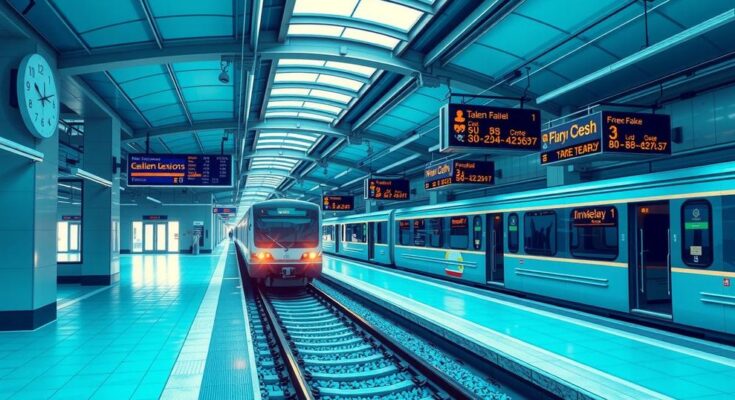The Deutsche Bahn rail system in Germany faces a significant crisis, with CEO Richard Lutz acknowledging this as the most challenging period in 30 years. Last year saw alarmingly low punctuality, with only 62.5% of long-distance trains arriving on time, and these figures exclude cancellations entirely. Financial losses compounded this issue, as the company incurred €2.7 billion in losses, contrary to a prior expectation of less than €330 million due to government funds for maintenance.
Lutz has initiated a “Strong Rail” strategy since 2019, aiming to meet Germany’s climate and transport goals. However, he admits the organisation is far from their quality and service targets, hindered by inflation and a severe passenger dip during the pandemic. Outdated infrastructure is the primary culprit, with much of it over 150 years old, necessitating comprehensive upgrades.
Germany’s network, which stretches over 33,500 kilometres, has long stood not just as a connection between cities but as a tale of neglect. In 2023, €7.6 billion was invested in repairs, yet many systems remain outdated, leaving modern technological advancements ineffective. Current plans include refurbishing 40 key rail lines, with an ambitious 4,200 kilometres of track improvements expected by 2030.
The Riedbahn project, a crucial route completed recently, cost €1.5 billion and required extensive upgrades. Later this year, another significant route connecting Hamburg to Berlin will undergo renovation, estimated at €2.2 billion, which will temporarily prolong travel times by an hour. Despite these disruptions, Lutz is hopeful for the mega refurbishment’s completion by 2030.
Lutz asserts that this progress hinges not only on Deutsche Bahn’s efforts but also on political support for streamlined planning and sufficient long-term financing. The recent government proposal for €500 billion in infrastructure funding alleviated some tensions. Overall, it’s emphasized that a reliable rail system is essential for both civilian movement and military transportation in Germany, particularly amidst ongoing European security concerns.
Germany’s rail operator, Deutsche Bahn, faces its biggest crisis in decades marked by delays and financial losses. CEO Richard Lutz highlights the urgency of addressing outdated infrastructure as they embark on a major upgrade initiative. With substantial government support and ambitious targets, the future of rail transport in Germany hangs in the balance, aiming for improvement by 2030.
In summary, Germany’s rail system is at a pivotal crossroad. Deutsche Bahn, under Richard Lutz’s leadership, is grappling with historic delays, significant financial losses, and outdated infrastructure. The ambitious upgrade plans target crucial rail lines and require substantial government backing to succeed. As 2030 approaches, overcoming these challenges is crucial not only for efficient transport but for Germany’s broader role in Europe.
Original Source: www.dw.com



